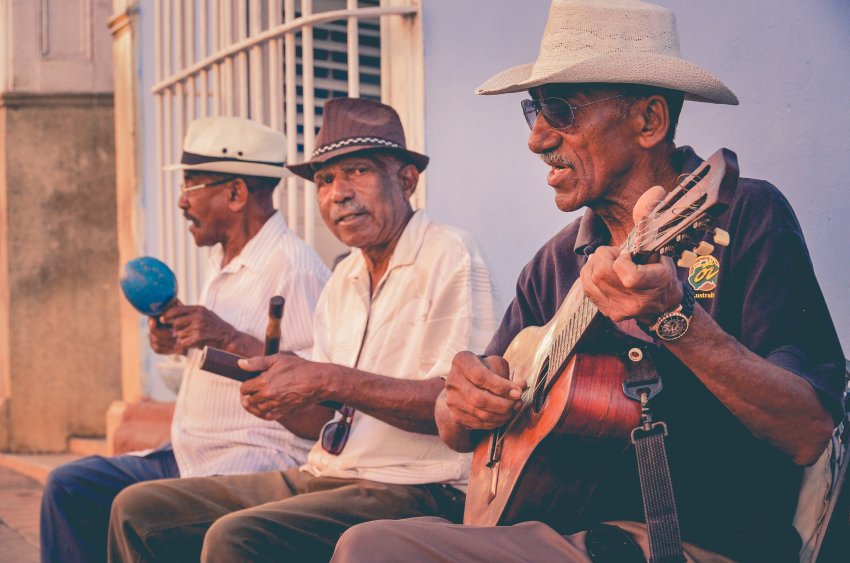
Tourism has been Cuba’s most important industry for some time now, but Washington's latest aggressive action seriously threatens its viability, as part of the United States attempt to destroy Cuba's economy and overthrow it's government.
In the dying days of his presidency, Donald Trump’s administration unjustly placed Cuba on the State Sponsors of Terrorism (SSOT) list — the culmination of Trump's hardline stance towards the country.
Trump’s “rationale” for the move was that Cuba was harbouring Colombian terrorists. However, Colombian groups were in Cuba as part of an internationally recognised process of peace negotiations that other countries including the US and the Vatican supported.
Only three other nations are on the SSOT list: Iran, Syria and North Korea.
Being on the SSOT list subjects Cuba to devastating international financial and commercial restrictions. For example, US banks are prohibited from processing or facilitating transactions to Cuba.
Worse, the extraterritorial reach of US legislation prevents, for all intents and purposes, banks and financial institutions of other Western countries, including Australia, from processing or facilitating transactions to Cuba. This continues to have a devastating effect on its economy.
US President Joe Biden has chosen not to remove Cuba from the SSOT list, even though it could be done with the stroke of a pen. Biden is more concerned about his support in Florida and the upcoming mid-term elections than the welfare of the Cuban people.
Australia, along with most other Western nations, places no restrictions on its passport-holders travelling to Cuba. However, Australian passport holders who have been to Cuba, or are planning to go there, may now experience issues getting into the US.
Most Australians, along with nationals and citizens of 36 other nations, have been, until now, able to travel to the US under what is known as the Visa Waiver Program (VWP).
However, all nationals and citizens of VWP countries, including Australia, must still obtain travel authorisation prior to initiating travel to the US. Authorisation may be obtained online through the Electronic System for Travel Authorization (ESTA).
However, under the terms of the ESTA, an Australian passport-holder cannot enter the US using an existing ESTA if they have previously visited a country on the SSOT list.
Nor are Australians who have been to Cuba able to apply for a new ESTA.
The inability to use ESTA even extends to transiting through the US.
This means that Australians — along with citizens of other nations — who have been to Cuba will have to apply for a US visa through the US embassy.
The current fee for a business or tourist visa or merely for transit is A$240. Currently, the ESTA application fee is about A$22.
There is absolutely no evidence Cuba supports terrorism. Indeed, Cuba has been the victim of US state-sponsored terrorism for decades.
The Resistance Books publication, Cuba: Revolution Under Attack, points out that since 1959 Cuba has been subjected to over 680 acts of terrorism including chemical warfare and bioterrorism, assassination attempts and terrorist attacks against tourist facilities carried out by US agencies or paid hitmen under their protection.
The terrorist attacks perpetrated on Cuba include air attacks and sabotage activities carried out by thousands of right-wing Cuban exiles. More than 3000 Cubans have died since 1959 as a result of these acts of terrorism.
Then-US deputy assistant secretary of state for inter-American affairs, Lester DeWitt Mallory, wrote a memorandum on April 6, 1960, stating that the majority of Cubans supported the Fidel Castro regime and that the only foreseeable means of alienating internal support to the government was through disenchantment and disaffection based on economic dissatisfaction and hardship.
Mallory recommended that all possible means be undertaken to weaken the economic life of Cuba, denying money and supplies to the country to decrease monetary and real wages and bring about hunger and desperation to overthrow the government.
His recommendations were adopted as US policy and continue to this day.
Cuba’s tourism industry is only beginning to pick up after the COVID-19 pandemic brought a virtual end to the industry. This new action by the US is a further blow.